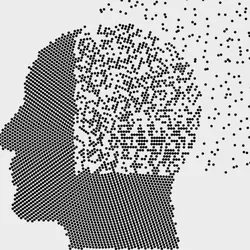
Abnormal Psychology 
This specialisation in Abnormal Psychology provides an overview of mental health issues from both a contemporary and historical viewpoint, offering an introduction to the study of abnormal psychology. ▼
ADVERTISEMENT
Course Feature
![]() Cost:
Cost:
Free Trial
![]() Provider:
Provider:
Coursera
![]() Certificate:
Certificate:
No Information
![]() Language:
Language:
English
Course Overview
❗The content presented here is sourced directly from Coursera platform. For comprehensive course details, including enrollment information, simply click on the 'Go to class' link on our website.
Updated in [March 06th, 2023]
1. Understanding of Historical Precedent: Learners can gain an understanding of the historical precedent in the field of mental health and how it influences modern-day perceptions of psychopathology. This includes learning about the development of the field, the various theories and approaches that have been used, and the impact of these on current practices. This knowledge can help learners to better understand the current state of mental health and how it has evolved over time.
2. Recognizing Signs of Distress: Learners can gain an understanding of how to recognize signs of distress in others. This includes learning about the various physical, emotional, and behavioral signs that may indicate distress, as well as how to respond appropriately. This knowledge can help learners to better support themselves and others in times of distress.
3. Empathic Approaches: Learners can gain an understanding of empathic approaches to interacting with people who are in distress. This includes learning about the importance of empathy, how to practice it, and how to use it to create a safe and supportive environment. This knowledge can help learners to better understand and support those who are in distress.
4. Symptomatology and Intervention Strategies: Learners can gain an understanding of symptomatology and intervention strategies in broad psychopathology experiences. This includes learning about the various symptoms associated with different mental health conditions, as well as evidence-based strategies for managing and treating them. This knowledge can help learners to better understand and support those who are struggling with mental health issues.
5. Fundamental Principles of Psychopathology: Learners can gain an understanding of the fundamental principles of psychopathology. This includes learning about the various theories and approaches used to understand and treat mental health conditions, as well as the various contextual factors that can influence mental health. This knowledge can help learners to better understand and support those who are struggling with mental health issues.
[Applications]
After completing this course, students should be able to apply the fundamental principles of psychopathology to their own lives and the lives of others. They should be able to recognize signs of distress in themselves and others, and be able to provide empathic support. Additionally, they should be able to identify and understand the historical precedent in the field of mental health and how it influences modern-day perceptions of psychopathology. Finally, they should be able to identify symptomatology, intervention strategies, and relevant contextual factors in broad psychopathology experiences.
[Career Paths]
1. Mental Health Counselor: Mental health counselors provide support and guidance to individuals, couples, and families who are struggling with mental health issues. They use evidence-based strategies to help clients develop coping skills, manage stress, and improve their overall wellbeing. Mental health counselors are in high demand due to the increasing prevalence of mental health issues, and the need for more accessible and affordable mental health services.
2. Clinical Psychologist: Clinical psychologists specialize in diagnosing and treating mental health disorders. They use a variety of techniques, such as psychotherapy, cognitive-behavioral therapy, and psychopharmacology, to help clients manage their symptoms and improve their quality of life. Clinical psychologists are in high demand due to the increasing prevalence of mental health issues, and the need for more accessible and affordable mental health services.
3. Psychiatric Nurse: Psychiatric nurses provide care and support to individuals with mental health issues. They use evidence-based strategies to help clients manage their symptoms, develop coping skills, and improve their overall wellbeing. Psychiatric nurses are in high demand due to the increasing prevalence of mental health issues, and the need for more accessible and affordable mental health services.
4. Mental Health Advocate: Mental health advocates work to raise awareness about mental health issues and advocate for improved access to mental health services. They use a variety of strategies, such as public speaking, media campaigns, and legislative advocacy, to promote mental health awareness and access to services. Mental health advocates are in high demand due to the increasing prevalence of mental health issues, and the need for more accessible and affordable mental health services.
[Education Paths]
1. Bachelor of Science in Psychology: This degree program provides a comprehensive overview of the field of psychology, including abnormal psychology. Students will learn about the history of mental health, the various types of psychopathology, and the evidence-based strategies for supporting those in distress. Additionally, students will gain an understanding of the various intervention strategies and contextual factors that can influence mental health.
2. Master of Science in Clinical Psychology: This degree program provides a more in-depth look at abnormal psychology, including the diagnosis and treatment of mental health disorders. Students will learn about the various types of psychopathology, the evidence-based strategies for supporting those in distress, and the various intervention strategies and contextual factors that can influence mental health. Additionally, students will gain an understanding of the ethical considerations involved in the diagnosis and treatment of mental health disorders.
3. Doctor of Philosophy in Clinical Psychology: This degree program provides an even more comprehensive look at abnormal psychology, including the diagnosis and treatment of mental health disorders. Students will learn about the various types of psychopathology, the evidence-based strategies for supporting those in distress, and the various intervention strategies and contextual factors that can influence mental health. Additionally, students will gain an understanding of the ethical considerations involved in the diagnosis and treatment of mental health disorders, as well as the research methods used to study psychopathology.
4. Master of Social Work: This degree program provides an in-depth look at the social and cultural aspects of mental health, including the diagnosis and treatment of mental health disorders. Students will learn about the various types of psychopathology, the evidence-based strategies for supporting those in distress, and the various intervention strategies and contextual factors that can influence mental health. Additionally, students will gain an understanding of the ethical considerations involved in the diagnosis and treatment of mental health disorders, as well as the social and cultural aspects of mental health.
Course Syllabus
Introduction to Abnormal Psychology
History of Mental Illness
Creating Behavioral Change
Course Provider

Provider Coursera's Stats at AZClass
Discussion and Reviews
0.0 (Based on 0 reviews)
Explore Similar Online Courses

Complete DevOps Gitlab & Kubernetes: Best Practices Bootcamp

Introduction to Educational Psychology

Python for Informatics: Exploring Information

Social Network Analysis

Introduction to Systematic Review and Meta-Analysis

The Analytics Edge

DCO042 - Python For Informatics

Causal Diagrams: Draw Your Assumptions Before Your Conclusions

Whole genome sequencing of bacterial genomes - tools and applications

A Life of Happiness and Fulfillment

Social Norms Social Change II

Introduction to Self-Determination Theory: An approach to motivation development and wellness
 Related Categories
Related Categories
 Popular Providers
Popular Providers
Quiz
 Submitted Sucessfully
Submitted Sucessfully
1. What is the main focus of Abnormal Psychology?
2. What is an example of an evidence-based strategy for supporting yourself and others?
3. What is an example of a contextual factor in broad psychopathology experiences?


Start your review of Abnormal Psychology